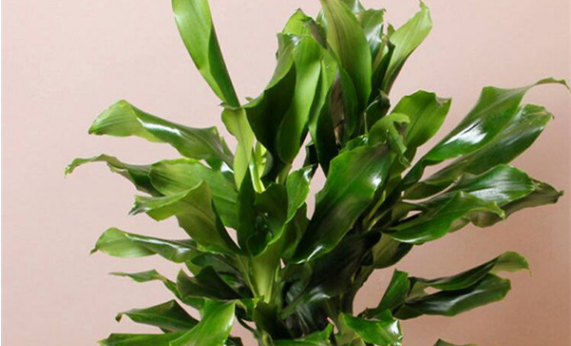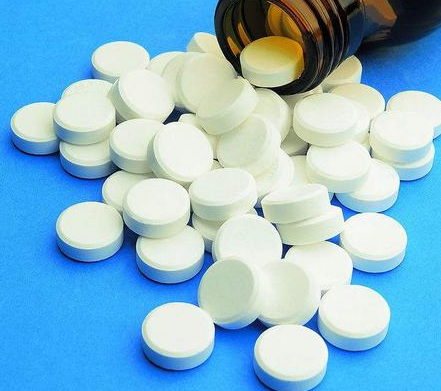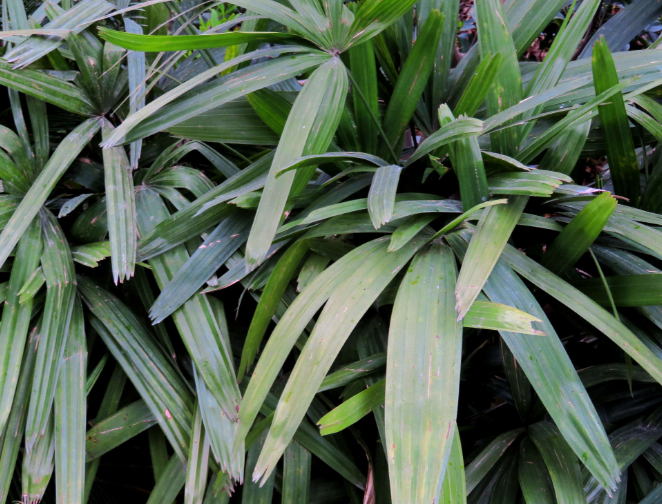What leaves are yellow in the culture method of threaded iron?
Threaded iron, also known as willow iron, Philippine iron, curly leaf iron, twisted iron, is one of the cultivated varieties of the genus Liliaceae, is a tropical evergreen shrub. Threaded iron is an excellent plant cultivated indoors, but the leaves will turn yellow when it is cultured. So how to raise threaded iron in the end? What if the leaves of threaded iron turn yellow?

1. What are the culture methods of threaded iron?
1. How to raise threaded iron?
Threaded iron is suitable for growing in high temperature, wet and half-day shade environment. Because it does not have high requirements for sunshine, it can keep the green buds and tender leaves under indirect light, and the leaves are flat and long, like banana leaves and smaller than them. In addition, threaded iron is suitable to be planted in cultivated soil, and sandy loam with good drainage can be used. The best growth temperature is between 20 and 30 degrees, and the lowest temperature can not be lower than 10 degrees in winter.
2. Culture method of threaded iron.
First of all, we should prepare the substrate for planting threaded iron. We can use loose, drained and ventilated imported peat of Pinpoint 5-40mm specification, mix the peat with water and wait for planting in a cup. The peat consumption in each basin of the 14cm basin is about 400ml, and a packet of 300L imported peat can hold about 750cups. Then select the professional production of high-quality seedlings, seedling height 11cm, crown width 7-8cm, no diseases and insect pests, no withered leaves, yellow leaves and so on. Generally use 14cm size basin planting when planting, first in the bottom of the cup cushion 2cm about the matrix, and then move the sieve seedlings into the cup, seedling planting should not be too deep, with flat plant base is appropriate; medium tightness, loaded to the cup 9 minutes full.
The rest is ordinary maintenance, the demand for water of threaded iron is not very great, it is generally appropriate to water dry and wet; the growth of threaded iron is slow, and the demand for fertilizer is relatively small, just 3 to 4 months before planting, because the root system is underdeveloped, usually water soluble fertilizer can be irrigated once every half a month, if the amount of fertilizer is large, it is not conducive to the growth of threaded iron.
3. Matters needing attention in threaded iron culture
1. Pot production standard: 14cm pot, height is 35cm, crown width is about 40 cm, market period is 7-8 months.
2. Matrix preparation: mix peat with water with loose, drained and ventilated imported peat of Pinnell 5-40mm specification (standard of adding water: after mixing well with water, hold a handful of peat tightly and water ooze from fingers). Stay for a cup and plant. The peat consumption in each basin of the 14cm basin is about 400ml, and a packet of 300L imported peat can hold about 750cups.
3. Requirements for potting seedlings: select high-quality seedlings produced professionally, seedling height 11cm, crown width 7-8cm, no diseases and insect pests, no withered leaves, no yellow leaves.
4. Upper cup: for the old basin that is re-used, it must be soaked in potassium permanganate 1000 times solution for more than half an hour, then rinse with clean water and dry for use. Generally use 14cm size pot planting, first in the bottom of the cup cushion 2cm about the matrix, and then move the sieve seedlings into the cup, seedling planting should not be too deep, flat planting base is appropriate; medium loose and tight, filled to the cup 9 minutes full.
2. What if the threaded iron leaves turn yellow?
1. Poor threaded iron plants lead to yellowing of leaves.
In the cultivation of threaded iron, it is very important to choose good plants. If you accidentally choose the threaded iron that is not growing well, it may cause the leaves to turn yellow. When choosing threaded iron, choose healthier growth, stronger branches, and then no damage to the leaves or yellow leaves, better.
2. The growth environment of threaded iron leads to the yellowing of leaves.
When raising threaded iron, the unsuitable growth environment is also an important reason for the yellowing of threaded iron leaves.
Threaded iron likes a high-temperature, humid and semi-overcast growth environment. When breeding, it is necessary to meet these environmental needs of threaded iron, such as too low temperature, or sun exposure, and so on. It will cause the threaded iron leaves to turn yellow and wither and the leaf tip to turn yellow.
3. Long-term stagnant water in threaded iron flowerpots leads to yellowing of leaves.
When raising threaded iron, it is necessary to maintain a moist environment, so some people can't help watering it hard, which is likely to lead to stagnant water in the threaded iron flowerpot for a long time, and the roots can not breathe, making it rotten rot. it will cause its leaves to turn yellow. Therefore, when raising threaded iron, we must reasonably water it, pay attention to drainage, and observe the growth of threaded iron at any time to avoid the phenomenon of rotten roots.
4. iron deficiency in threaded iron leads to yellowing of leaves
When raising threaded iron, there is another possibility that the plant lacks iron, which can also cause its leaves to turn yellow. At this time, you can spray some ferrous sulfate solution to the threaded iron, usually once in 10 days or so, two or three times in a row, and the leaves will turn green again.
Culture methods of threaded iron and matters needing attention for yellowing of leaves
Nowadays, people especially like to raise plants with good air purification ability, such as threaded iron, indoors. Threaded iron, there may not be many people who know about it, and perhaps many people have heard of this plant for the first time, but it is indeed a very good indoor plant. So how should this threaded iron be cultured, what is its breeding method, and what should we do when its leaves turn yellow? Now let's take a look at the threaded iron.
What is threaded iron?
The so-called threaded iron is actually one of the cultivated varieties of the genus Liliaceae, it is also called willow iron or Philippine iron tree, is a common tropical evergreen shrub, because it has good air purification ability, can absorb indoor formaldehyde and other harmful substances, is often placed in indoor breeding, is a very famous indoor plant, and its leaves are evergreen all the year round, looking very beautiful Therefore, it also has a good ornamental value. Threaded iron placed indoors can not only purify indoor air, but also afforest the indoor environment and decorate the whole home, so many people like it very much.
Culture method of threaded iron
1. Threaded iron is a common indoor ornamental plant, which is sexually fond of high temperature and semi-sunny growth environment. Threaded iron is a tropical evergreen shrub, so the temperature and light of its growing environment are more important in the process of culture. Threaded iron likes the high temperature environment very much, and its suitable growth temperature is between 20 and 30 degrees Celsius. When the temperature is too high, it still has a certain negative effect on the growth of plants. Therefore, in general, when the summer temperature is high, you still need to avoid the appearance of too high temperature, which can be cooled appropriately. Threaded iron likes to grow in a half-day overcast environment, and the overall requirement for sunshine is not very high.
2. As a tropical plant, threaded iron not only likes high temperature, but also likes moist growing environment. Therefore, in the process of breeding, we also need to pay more attention to the water problem of plants. In general, threaded iron is cultivated indoors, so in terms of watering, it is better to keep the soil moist, the summer temperature is high, and the water evaporates quickly, so it is necessary to increase moisture appropriately, while in autumn and winter, the water demand of plants is greatly reduced. can appropriately reduce the number of watering and watering, overwintering can also stop watering to avoid plant frost damage.
3. The soil requirements of indoor breeding threaded iron are very simple. Generally, sandy loam with good air permeability and good drainage can be used as cultivation soil, so we can prepare some such soil when we breed. And the demand for threaded iron in plant fertilizer is also very simple, because the growth rate of threaded iron is usually relatively slow, so there is little demand for fertilizer, so it can be dissolved in water. It is usually 2000 times as much as water-soluble fertilizer every half a month.
Notes on yellowing of threaded iron leaves
Where there is cause, there is fruit, so when people find their own threaded iron leaves yellowing, they should find out the cause of the yellowing of plant leaves, and then solve the problem of yellowing leaves specifically for a certain reason. Usually the reason for the yellowing of plant leaves is related to watering or sunshine, if watering is not a problem, then make corresponding changes to watering, if sunshine is not a problem, then slightly change the sunshine-related problems of the plant. Next, according to experienced people, the yellowing of threaded iron blades can also be solved by watering the roots with ferrous sulfate 1VL 1000 aqueous solution, once every 10 days.
Conclusion: in fact, threaded iron is a relatively good breeding plant, and its breeding methods and matters needing attention are also very simple, so we do not need to have a lot of worries in breeding threaded iron, just culture happily.
What if the threaded iron leaves turn yellow?
Poor threaded iron plants lead to yellowing of leaves.
In the cultivation of threaded iron, it is very important to choose good plants. If you accidentally choose the threaded iron that is not growing well, it may cause the leaves to turn yellow. When choosing threaded iron, choose healthier growth, stronger branches, and then no damage to the leaves or yellow leaves, better.
The growth environment of threaded iron leads to the yellowing of leaves.
When raising threaded iron, the unsuitable growth environment is also an important reason for the yellowing of threaded iron leaves.
Threaded iron likes a high-temperature, humid and semi-overcast growth environment. When breeding, it is necessary to meet these environmental needs of threaded iron, such as too low temperature, or sun exposure, and so on. It will cause the threaded iron leaves to turn yellow and wither and the leaf tip to turn yellow.
Long-term accumulation of water in threaded iron flowerpots leads to yellowing of leaves.
When raising threaded iron, it is necessary to maintain a moist environment, so some people can't help watering it hard, which is likely to lead to stagnant water in the threaded iron flowerpot for a long time, and the roots can not breathe, making it rotten rot. it will cause its leaves to turn yellow. Therefore, when raising threaded iron, we must reasonably water it, pay attention to drainage, and observe the growth of threaded iron at any time to avoid the phenomenon of rotten roots.
Iron deficiency in threaded iron causes yellowing of leaves
When raising threaded iron, there is another possibility that the plant lacks iron, which can also cause its leaves to turn yellow. At this time, you can spray some ferrous sulfate solution to the threaded iron, usually once in 10 days or so, two or three times in a row, and the leaves will turn green again.
- Prev

Expired pills how to cultivate flowers can accelerate germination and root
To talk about this expired pill, almost everyone may have, this expired pill is also useful, do not throw, expired pills how to raise flowers: 1, promote rooting, promote the survival rate of branches 4~6 days before grafting, spray cuttings with aspirin, promote rooting, can improve the survival rate of grafting
- Next

What are the functions of culture methods and matters needing attention of brown bamboo
About brown bamboo, this is what many people like, it can be said that it is necessary at home, let's take a look at the breeding methods and matters needing attention of brown bamboo? What are the functions of palm bamboo: Palm bamboo, also known as Guanyin bamboo, Jintou bamboo, palm bamboo, dwarf palm bamboo, is an evergreen foliage plant of palm family. Leafy node
Related
- Fuxing push coffee new agricultural production and marketing class: lack of small-scale processing plants
- Jujube rice field leisure farm deep ploughing Yilan for five years to create a space for organic food and play
- Nongyu Farm-A trial of organic papaya for brave women with advanced technology
- Four points for attention in the prevention and control of diseases and insect pests of edible fungi
- How to add nutrient solution to Edible Fungi
- Is there any good way to control edible fungus mites?
- Open Inoculation Technology of Edible Fungi
- Is there any clever way to use fertilizer for edible fungus in winter?
- What agents are used to kill the pathogens of edible fungi in the mushroom shed?
- Rapid drying of Edible Fungi

